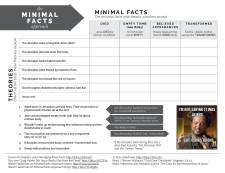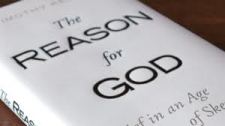Book Discussion of Christopher Norris’ “Epistemology: Key Concepts in Philosophy”
Chapter 4: Response-Dependence: What’s in it for the Realist? –
Sections V-VI.
The first two paragraphs are a review of RD’s shortcomings, and then we begin to discuss Crispin Wright’s “superassertibility”, briefly mentioned in the first section of the introduction.
A statement is superassertible if its “‘pedigree would survive arbitrarily close scrutiny’, or whose truth would b sustained if all the evidence were in and assessed by a maximally competent subject under ideal epistemic conditions.”
Some problems with this, of course.
1. Does not accept the “two most basic tenets of any realist conception”—(i) it involves relation between truth-maker (reality) and truth-bearer (statement), (ii) the statement can possess objective value apart from our ability to judge its truth or falsehood.
2. There is nothing at stake between the realist and the advocate of superassertibility—they will just agree on the truth-value of many things, but for different reasons—the realist will say “It is because statements are true that they are superassertible” (Socrates) and the superassertibilist will say, “It is because statements are superassertible that they are true” (Euthyphro).
3. Wright explains it “is, in a natural sense, an internal property of the statements of a discourse—a projection, merely, of the standards, whatever they are, which actually inform assertions within the discourse.” “[I]t supplies no external norm—in a way that truth is classically supposed to do—against which the internal standards might sub specie Dei themselves by measured, and might rate as adequate or inadequate.”
–So, little difference with Wittgensteinian “discourse-internal criteria”.
–Using the phrase “external norms” rigs the debate, as does Rorty’s use of “God’s eye view”—but these ways of phrasing things, confuse “truth and knowledge (or truth and certainty” (or world and mind).
That road leads to and ends at Dummett (see chapter one, sections II-III). “Dummett may differ from Kripke in maintaining that assertible utterances (thus defined) are fit candidates for the assignment of truth- and falsehood-values as opposed to Kripke’s more thoroughgoing skeptical view that their warrant comes only from the fact—whatever sort of ‘fact’ it may be—of their playing some communally recognized role in our various rule-following practices.”
Realist solution:
Adopt “a properly ‘stratified’ approach to the different kinds or levels of explanatory method and procedure involved in various disciplines or subject areas. This it can achieve only by allowing for the full range of reciprocal interactions between physical (real-world) properties and structures, causal powers, experimental situations, investigative methods, observational contexts, descriptive paradigms, explanatory theories and the level at which our understanding of these diverse factors is itself influenced by the social conditions of scientific and everyday knowledge production.”
Skipping Bhaskar discussion. It seems Norris is trying to say that RD (with the exception of Philip Pettit) does not take into account that humans can taint the object by mere observation (due to seeing through a lens shaped by social conditions, etcetera)…leaving it open to obvious objections (and also indirectly admitting the object is not its observation).
In short, truth is true regardless our grasping of it, and we can make every effort to take account of and attempt to reduce the influence of the “social conditions” (etcetera) which only effect the grasping (epistemology), and not the “truth” (ontology). That does not put truth beyond our reach, otherwise there would be no talk of grasping. But ‘grasping’ (epistemology) must never be said to ‘be’ ‘that which is grasped’ (ontology). Otherwise you’re just grasping at grasping (anti-realism)…reducing to total skepticism—an avoidable result. If we recognize that truth and its grasping are not the same thing, and if we take into account the social factors (etc.) of the grasping, then we can “prevent the chronic oscillation between an individualist (even solipsistic) approach to the ‘problem of knowledge’ and a full-fledged communitarian approach like Kripke’s so-called ‘sceptical solution’. What critical realism thus holds out is the prospect of explaining both how this situation arose (through a ‘fetishized’ empiricist idea of perceptual warrant and its origins in Locke) and how it might be resolved—or transcended—through a fruitful conjunction of ideas and methodologies from philosophy of the natural and social sciences.” (“Fetishized” means “naturalized” I guess.)
Interesting that he refers to “reified or non-dialectical” conceptions of knowledge as being deficient. Love it.
So—we don’t have to accept Rorty’s “jamming together of a hard-line causal-determinist doctrine as applied to ‘unmediated’ sensory data with the ‘strong’-descriptivist notion that scientific ‘truths’ are as many and various as the culturally contingent theories, languages, metaphors or narratives in which they play a transient role.” RD is an inadequate (see discussion of Johnston’s ‘missing explanation’ in section three) response to this…when instead we could just ignore it as a false dilemma.









